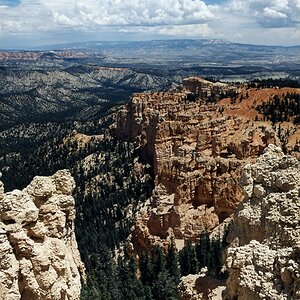- Joined
- Jul 8, 2005
- Messages
- 45,747
- Reaction score
- 14,806
- Location
- Victoria, BC
- Website
- www.johnsphotography.ca
- Can others edit my Photos
- Photos OK to edit
I'm interested in finding out how many out there have completed some sort of formal photographic training, and of what type (community college, on-line, correspondance, et cetera).
What is your opinion on accreditation? After all, photoraphy isn't like plumbing; different doesn't mean wrong. Can you really teach art?
Is it necessary to have classroom training to be a pro, or are experience and self-instruction good enough?
What is your opinion on accreditation? After all, photoraphy isn't like plumbing; different doesn't mean wrong. Can you really teach art?
Is it necessary to have classroom training to be a pro, or are experience and self-instruction good enough?



![[No title]](/data/xfmg/thumbnail/41/41798-aacfc8368463d919cba743fe318706b6.jpg?1619739897)
![[No title]](/data/xfmg/thumbnail/36/36676-cb11e40ab23f22c2a0af6fbf4ab02371.jpg?1619737676)
![[No title]](/data/xfmg/thumbnail/41/41795-6bc3a19e590a6be6bd169ab2acaee30d.jpg?1619739896)




![[No title]](/data/xfmg/thumbnail/36/36677-3b91df53323d0850489794f28b3b9800.jpg?1619737677)
